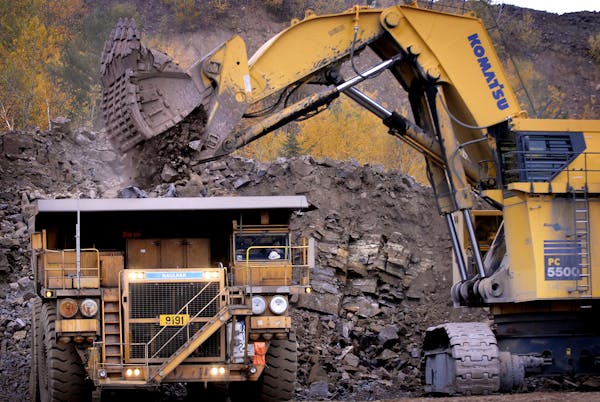A U.S. Steel taconite mine in northeast Minnesota must reduce water pollution that threatens wild rice, the Minnesota Pollution Control Agency decided, after considering the company's request for an exemption.
U.S. Steel has since appealed the decision in court, and the decisions that stem from the case could have statewide relevance as Minnesota begins to enforce a pollution standard that's been on the books since 1973.
"It's a big test case," Paula Maccabee, an attorney with the environmental nonprofit WaterLegacy, said of the appeal. The group seeks to intervene in the court case.
U.S. Steel had asked MPCA to allow sulfate levels about eight times higher than the standard of 10 parts per million in Hay Lake, downstream of the company's Keetac plant in Keewatin. High levels of sulfate, a chemical released in the wastewater of taconite operations, are toxic to wild rice plants that grow in some Minnesota lakes and rivers.
MPCA responded in a February letter that U.S. Steel's request for a looser standard was not "scientifically defensible." Among the problems was that U.S. Steel did not have enough data over a continuous period to show whether rice was thriving in Hay Lake.
"Providing historical documentation of wild rice presence and articulating a general expectation that it will be present into the future does not, by itself, establish that [the plants are] protected," the letter read.
U.S. Steel spokeswoman Amanda Malkowski wrote in an email that because the company will now likely have to install more water-treatment equipment, "MPCA's decision could result in increased environmental impact and less efficient operations, which would lead to increased costs that reduce our competitiveness in the marketplace."
The denial of the exception U.S. Steel asked for, called a "site-specific standard," is the first time MPCA has turned down such a request. The agency is only starting to enforce the 10 ppm standard.
For decades, the law was never enforced, and in more recent times, legislators had asked the agency more than once to alter the rule or drop it entirely.
Wild rice was central to the migration of Ojibwe people to the Great Lakes hundreds of years ago, and is still a sacred crop. Tribes had been asking the MPCA to enforce the pollution rule for at least two decades.
The EPA ordered the state start enforcement in 2022. The federal agency would also have to approve any site-specific standard granted in a stream or lake.
The U.S. Steel case is now pending in Appeals Court. MPCA had indicated in court filings it will defend its decision, but did not immediately respond to a request for comment about the legal challenge.
In another request, Cleveland Cliffs has asked for a sulfate limit more than 40 times the state standard for waters downstream of its United Taconite mine near Eveleth. The agency has not yet made a decision on that request, MPCA spokeswoman Andrea Cournoyer said.

Want to share info with the Star Tribune? How to do it securely

'Safe recovery sites' would offer syringes, naloxone and more to people using drugs. The plan could be in peril.
New Minnesota GOP leaders seek peace with party's anti-establishment wing

Who is Republican Lisa Demuth, Minnesota's first House speaker of color?

